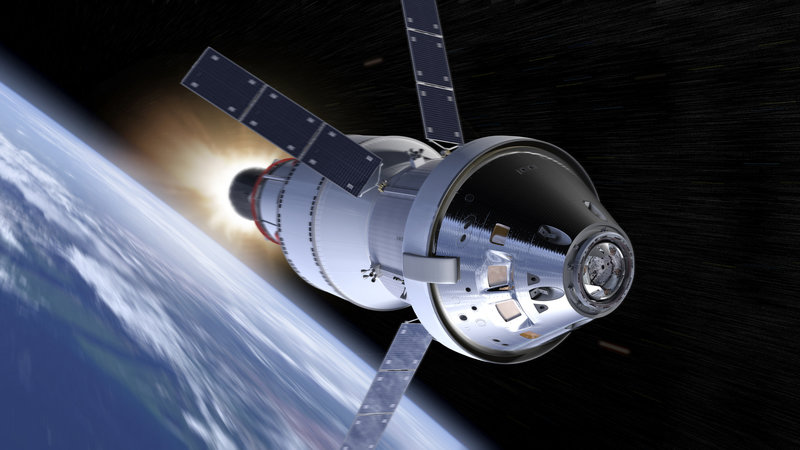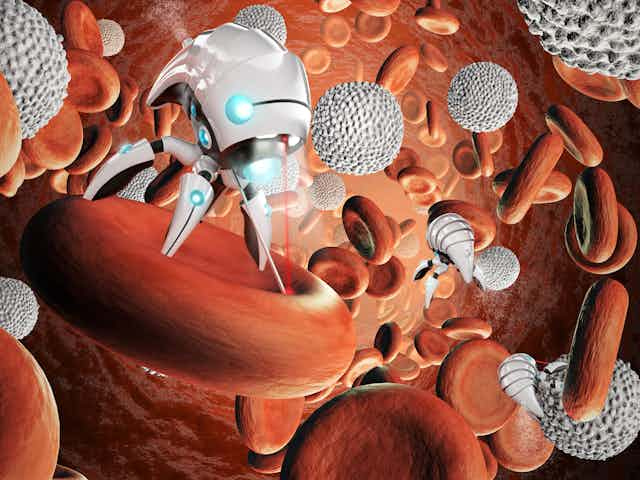Education has always been more than just a transfer of knowledge. It is the shaping of minds, the nurturing of curiosity, and the cultivation of the skills needed to thrive in an ever-changing world. Yet, for centuries, the way we learn has followed a similar model: a teacher, a classroom, a fixed curriculum, and a one-size-fits-all approach. While this system has built nations, produced scientists and artists, and lifted billions out of ignorance, it has also left many learners behind.
The world is now at the threshold of a profound transformation. Advances in artificial intelligence, neuroscience, and data science are converging to create a new era of education—one that is personalized, adaptive, and deeply human-centered. The future of learning will not be defined by standardized tests or rigid classrooms but by dynamic, AI-powered systems that understand each learner as an individual and respond to their unique needs. This is not a distant dream. It is unfolding now, and it promises to redefine what it means to be educated in the 21st century.
The Limits of Traditional Education
To understand why personalized, AI-powered learning is revolutionary, we must first reflect on the limitations of the current system. Traditional education often treats students as if they were identical, moving them through the same material at the same pace regardless of background, ability, or interest. Some thrive in this system, but many struggle. Students who grasp concepts quickly may feel unchallenged and disengaged, while others who need more time may feel left behind and discouraged.
Teachers, despite their dedication, face enormous challenges. They are tasked with managing classrooms of 20, 30, or even 50 students, each with different strengths and weaknesses. Even the most skilled educator cannot provide the level of individual attention that every learner deserves. The result is an education system that works adequately for some but fails to unlock the full potential of many.
This gap between what education offers and what learners truly need has become more pressing in an age defined by rapid technological change. The skills required for tomorrow—creativity, problem-solving, adaptability, and lifelong learning—cannot be nurtured by a rigid, industrial-age model of schooling. Education must evolve, and AI is the key catalyst for this transformation.
The Rise of AI in Learning
Artificial intelligence, at its essence, is about building systems that can learn, adapt, and make decisions. In education, AI does not replace teachers but empowers them. It becomes a partner, analyzing data about how students learn, where they struggle, and what engages them most. From this analysis, AI systems can tailor lessons, recommend resources, and adjust pacing to fit the learner’s individual journey.
Imagine a student struggling with algebra. An AI-powered learning platform can instantly detect the difficulty, review the student’s history of errors, and offer alternative explanations—perhaps using visuals, real-world examples, or step-by-step breakdowns. If the student continues to struggle, the system can return to foundational concepts, ensuring mastery before moving forward. Conversely, a student excelling in algebra might be accelerated to advanced topics, preventing boredom and nurturing deeper engagement.
This is personalization at scale, something no traditional classroom can achieve consistently. AI’s strength lies in its ability to adapt to millions of students simultaneously, offering each one a unique path while still aligning with overall educational standards.
Personalized Pathways and Human Potential
The power of personalized learning goes beyond academic performance. It changes how students perceive themselves and their abilities. In traditional classrooms, students are often labeled—“gifted,” “average,” or “struggling”—labels that can shape self-esteem and limit growth. Personalized, AI-powered systems dismantle these labels by meeting students where they are, allowing progress to be measured not against peers but against one’s own potential.
This fosters a growth mindset. Learners see that struggling with a concept is not a sign of failure but part of a personalized journey. They gain confidence as they overcome challenges at their own pace, and their motivation grows as they experience success tailored to their effort. Education becomes less about competition and more about self-discovery, resilience, and empowerment.
Moreover, AI-powered systems can recognize different learning styles. Some students may absorb information best through text, others through visuals, others through hands-on activities or interactive simulations. By adapting to these preferences, education becomes not only more effective but also more enjoyable, reigniting the natural curiosity that drives true learning.
The Role of Teachers in an AI Future
A common fear is that AI will replace teachers. In reality, AI redefines the role of educators, freeing them from routine tasks so they can focus on what truly matters: human connection, mentorship, and inspiration.
Grading papers, managing administrative work, and delivering repetitive lessons consume vast amounts of teachers’ time. AI can automate much of this, giving teachers the freedom to engage more deeply with students. Instead of lecturing the same material year after year, teachers can act as guides, coaches, and motivators. They can focus on building critical thinking, creativity, empathy, and collaboration—skills that machines cannot replicate.
In this vision, AI does not diminish the teacher’s role but elevates it. The classroom becomes less about memorizing facts and more about exploring ideas, solving problems, and developing the human qualities that make education meaningful. Teachers, empowered by AI, will be more crucial than ever as role models and architects of learning communities.
Beyond the Classroom: Lifelong Learning
The future of education is not confined to schools or universities. In a rapidly changing world, learning will no longer end with graduation. Instead, it will be a lifelong endeavor, with AI serving as a constant companion and guide.
As industries evolve and new technologies emerge, workers will need to reskill and upskill throughout their lives. AI-powered platforms can provide on-demand, personalized training, adapting to an individual’s career path, goals, and progress. A medical professional could stay current with breakthroughs in healthcare, a factory worker could learn to operate new machinery, and an entrepreneur could master emerging tools—all through personalized, AI-driven systems available anytime, anywhere.
This democratizes education. No longer will learning be limited to those who can afford expensive institutions or relocate to urban centers. With AI and digital infrastructure, high-quality, personalized learning can reach remote villages, underserved communities, and people of all ages. Education becomes not a privilege but a universal right, accessible at the tap of a finger.
The Science Behind AI-Powered Learning
At the heart of AI-powered education is data—vast amounts of information about how students learn, think, and engage. Every click, pause, question, and success provides insights into the learner’s cognitive processes. Advanced algorithms analyze this data, identifying patterns invisible to the human eye.
For example, AI can detect when a student is losing focus, when frustration is building, or when motivation is peaking. Some systems use biometric feedback, like eye-tracking or heart rate monitoring, to understand engagement on an even deeper level. With this knowledge, lessons can be adjusted in real time, ensuring that learning remains effective and enjoyable.
Neuroscience supports this approach. Research shows that the brain learns best when material is presented at the right level of challenge—not too easy, not too hard. This “zone of proximal development” is precisely what AI excels at finding for each learner. By continually adjusting difficulty and presentation, AI keeps students in that optimal zone, maximizing retention and growth.
Challenges and Ethical Questions
While the potential of AI-powered education is extraordinary, it is not without challenges. One of the most pressing concerns is equity. If access to AI tools depends on wealth or geography, the digital divide may widen, leaving disadvantaged students further behind. Ensuring that personalized education reaches every child, regardless of background, must be a priority.
Privacy is another critical issue. AI systems rely on sensitive data about learners, including performance, behavior, and sometimes biometric information. Protecting this data from misuse, ensuring transparency, and granting students and parents control over how it is used are essential for building trust.
There is also the danger of over-reliance on technology. While AI can personalize content, it cannot replace the human aspects of learning—empathy, creativity, moral judgment, and cultural understanding. Education must remain a fundamentally human endeavor, with AI as a tool rather than a master.
Finally, there is the question of values. What kind of citizens should education produce? AI systems will reflect the biases and priorities of those who design them. If not carefully managed, they could reinforce stereotypes, limit perspectives, or prioritize efficiency over empathy. Creating ethical, inclusive, and human-centered AI in education will require collaboration among educators, technologists, policymakers, and communities.
A Glimpse Into the Future Classroom
Imagine walking into a classroom of the future. There are no rows of desks facing a chalkboard but flexible spaces for collaboration, exploration, and creativity. Each student has access to an AI-powered learning assistant—perhaps through a tablet, wearable device, or even augmented reality glasses.
The assistant knows the student’s strengths, challenges, and goals. It guides them through lessons, adjusting pace and style in real time. When a concept is mastered, it offers deeper challenges. When confusion arises, it provides alternative explanations or supportive practice.
Teachers circulate through the room, not delivering identical lectures but engaging in meaningful conversations, guiding group projects, and nurturing the social-emotional growth of their students. Learning is not bound by the classroom walls. Students take their assistants home, continuing their personalized education through interactive projects, virtual reality field trips, or AI-guided experiments in their communities.
The classroom becomes a hub, not a limit, and learning becomes a lifelong adventure powered by curiosity and guided by technology.
The Promise of a More Human Education
At first glance, the phrase “AI-powered education” may sound cold or mechanical. Yet, paradoxically, it promises to make learning more human than ever before. By handling routine tasks and tailoring content to individual needs, AI frees teachers and students to focus on what cannot be automated: imagination, empathy, collaboration, and ethical reflection.
Education, in this future, becomes not just about preparing workers for jobs but about cultivating whole human beings. It is about unlocking the unique potential of every learner, recognizing that each child has a different rhythm, story, and dream. It is about creating a society where knowledge is not standardized but personalized, not limited but limitless.
Conclusion: The Dawn of a New Era
We stand at the dawn of a new era in education. The convergence of AI, neuroscience, and digital connectivity is giving rise to a system that is adaptive, inclusive, and deeply personal. The future of learning will not be defined by crowded classrooms and rigid curricula but by individualized journeys guided by intelligent systems and human mentors.
The stakes are enormous. If harnessed responsibly, AI-powered personalized learning could democratize education, bridge divides, and empower generations to thrive in a rapidly changing world. It could spark creativity, nurture resilience, and inspire lifelong curiosity. But this future is not inevitable. It will depend on the choices we make—about equity, ethics, access, and values.
Education has always been a mirror of society’s highest aspirations. In shaping the future of learning, we are shaping the future of humanity itself. And perhaps, when we look back a century from now, we will see this moment as the time when we finally fulfilled education’s oldest promise: to unlock the potential of every mind and to illuminate the path toward a wiser, more compassionate world.






